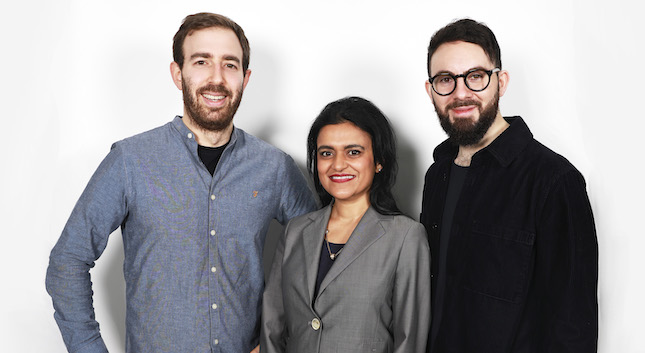New wellness startup Heights is formally launching this week, focusing on a category it describes as ‘braincare’. The startup will market “ultra high quality, sustainable plant-based supplements that feed your brain” based on what it says is scientific data.
It has raised a $2 million Seed funding round (£1.7M) via the Seedrs crowdfunding platform, with the round also including the institutional investor Forward Partners. Angel investors include Tom Singh (founder of New Look), Damian Bradfield (WeTransfer), Dhiraj Mukherjee (Shazam), Renee Elliot (Planet Organic), and celebrity investor Chris Smalling (an England and Manchester United professional footballer).
The funds will be used for customer growth and new product development, including soon-to-launch a ‘psychobiotic‘ probiotic aimed at cognition and mental health.
Customers first take a ‘brain health’ survey, then sign up for a monthly, quarterly, or annual subscription.
Customers need only take two capsules a day, thus hugely decreasing the complexity of juggling regular vitamin taking.
The product fits through a letterbox and the unusual bottle was designed by the well-known product design agency Pentagram. A content and coaching program included in the subscription helps customers, and another brain health survey happens after a month. Heights claims that “93%” improve their brain health score within one month.
Heights is not alone in this new market for what some describe as ‘designer vitamins’ and the arena is already populated by the likes of Hims / Hers, Motion, Vitabiotics and Bulletproof.
These companies broadly fall into the “Nootropics” category — vitamins and minerals designed to improve cognitive function, memory, creativity, or motivation, in healthy individuals. But the market is not small. The ‘self care’, ‘healthcare’, and ‘personal development’ market is worth over $1Trillion but supplements alone is worth at least $100BN+.

Heights founders Dan Murray-Serter and Joel Freeman, with adviser Dr. Tara Swart.
However, co-founder Dan Murray-Serter says Heights is aiming to do something different to the aforementioned players.
In a text-based interview, he said: “Nootropics as a category really focus on quick fixes, which is why we’re working on the category creation of ‘braincare’ because there are no ‘quick fixes’ in life, and that terminology and category have essentially set people up with the same false hopes as ‘get-rich-quick’ schemes do. We’re set up differently — aka, starting with scientifically researched articles and journal references.”
He said Heights will be positioned more like a skincare or haircare brand, “because people understand that the daily habit/practice is what creates the longevity and impact, not just a one-day miracle.”
Murray-Serter says there are 20 key nutrients science says our brains need to thrive, and these are mostly found in a combination of buying multivitamins, omega 3s, and ‘nootropics’. He says Heights has sourced the “highest quality” ingredients in the most ‘bioavailable form’ in a patented capsule which makes it easier to digest for the body.
“One of the most common reasons the habit of taking vitamins doesn’t stick for people is that the bottle goes into a cupboard and gets ignored. So we started with design alongside quality,” he says. The Heights vitamins come in a distinctive, recyclable bottle which Heights will also aven recycle if you send it back to them.
Murray-Serter, who previously founded the mobile startup Grabble, says he came up with the idea for the startup after a bout of chronic anxiety and a 6 month-long period of insomnia. The problem was solved by high-quality, high-density vitamins and supplements, as opposed to normal supplements which usually only have the lowest recommended daily levels of vitamins inside them.
After starting a newsletter on the subject of optimizing cognitive performance with cofounder Joel Freeman, the pair amassed a following of 60,000 readers https://ift.tt/36oakuX
and then came up with the idea of launching the actual product.
The company now has a ‘Braincare‘ podcast that has reached 100,000 downloads, and the founders have also been joined by key team member Chief Science Officer, Dr Tara Swart (pictured).
Two things may help Heights. Firstly, in the era of Covid-19, public health authorities and governments around the world have recommended taking Vitamin D to boost the body’s immune system should someone fall prey to the disease. It’s not insignificant that two Heights capsules contain 400% of the ‘Nutrient Reference Value’ (formerly known as Recommended Daily Allowance) of Vitamin D3, as well as many other supplements. Theoretically, one could take four normal tablets of this, but the customer experience and other added vitamins in Heights will appeal to many. Secondly, the growing awareness of mental health and interest in maintaining good mental health is now a regular subject of public discourse. So Heights appears to be well-positioned to ride both those waves.
Comments
Post a Comment